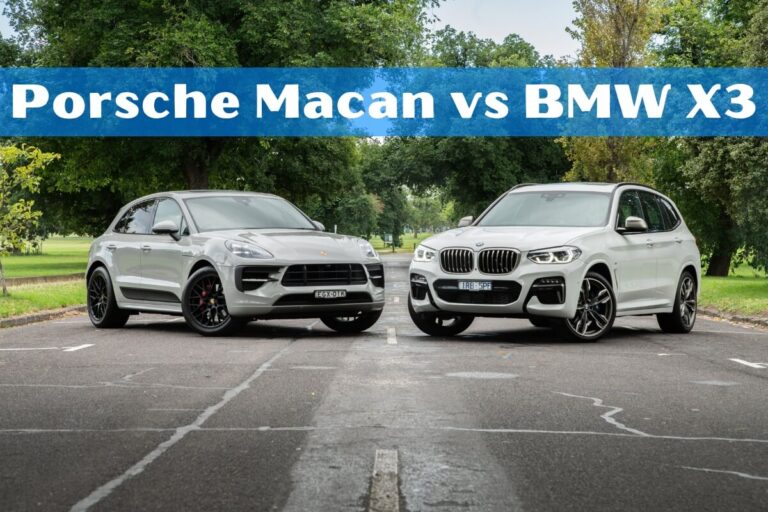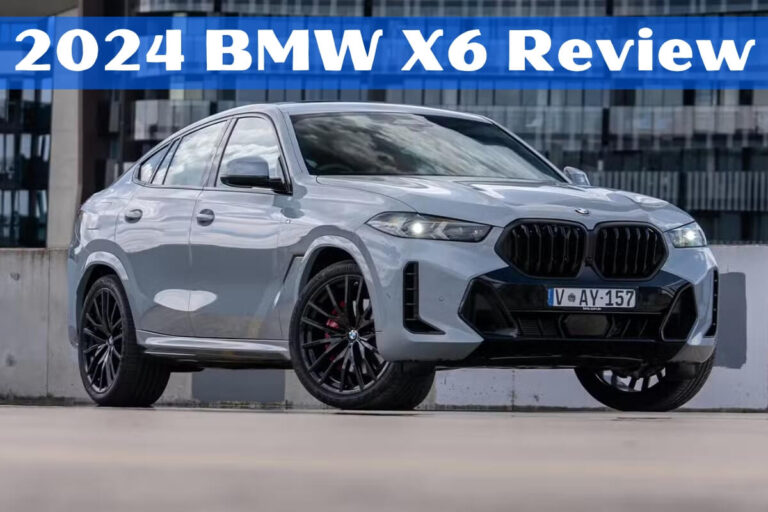How Much is a BMW X1? The Costs Explained in Detail
Are you wondering, “How much is a BMW X1?” If you’re in the market for a premium compact SUV, the BMW X1 is likely on your radar. This article will provide a comprehensive breakdown of the X1’s pricing, from the base model to fully-loaded trims, as well as additional costs to consider for ownership. Whether you’re a first-time buyer or a seasoned BMW enthusiast, this guide will equip you with the knowledge to make an informed decision.
In this detailed post, we’ll cover:
- Factors affecting the price of a BMW X1
- Base prices for different models and trim levels
- Cost of ownership: financing, insurance, and maintenance
- Tips for getting the best deal on a BMW X1
- Is the BMW X1 worth the price? Value comparison with competitors
So, let’s dive in and explore the cost of owning this compact luxury SUV from BMW.
Factors Affecting the Price of a BMW X1
The price of a BMW X1 can vary significantly depending on several factors. Understanding these variables will help you make an informed decision and find the perfect X1 that fits your budget and preferences.
Trim Levels and Configurations
The BMW X1 is available in multiple trim levels, each offering a different combination of features, performance, and luxury appointments. The base model, typically referred to as the sDrive28i or xDrive28i (depending on front-wheel or all-wheel drive), is the most affordable option. However, if you desire more power, advanced technology, or a sportier driving experience, you might consider upgrading to higher trims like the M Sport or the top-of-the-line M35i.
Optional Packages and Additional Features
BMW offers a wide range of optional packages and standalone features that can further customize your X1. These options can include premium audio systems, heated seats, panoramic sunroofs, advanced driver-assistance technologies, and more. While these extras can enhance your driving experience, they can also significantly increase the overall cost of the vehicle.
Location and Market Variations
The price of a BMW X1 can also vary based on your geographic location and the local market conditions. Factors such as supply and demand, taxes, and dealer markups can influence the final price you pay for your X1. It’s essential to research pricing in your specific area to get an accurate estimate.
Base Price of the BMW X1
Now that we’ve covered the factors that can impact the price, let’s take a look at the base prices for different BMW X1 models and trim levels.
According to BMW’s official pricing, the base model BMW X1 sDrive28i starts at around $38,600 MSRP for the 2023 model year. This front-wheel-drive variant comes equipped with a 2.0-liter turbocharged four-cylinder engine, producing 241 horsepower and 258 lb-ft of torque.
If you prefer all-wheel drive, the BMW X1 xDrive28i starts at approximately $40,600 MSRP. This model offers the same powertrain as the sDrive28i but with the added traction and stability of BMW’s xDrive all-wheel-drive system.
For those seeking a more performance-oriented experience, the BMW X1 M35i xDrive is the top-of-the-line trim, starting at around $48,900 MSRP. This model is powered by a 2.0-liter turbocharged four-cylinder engine that produces an impressive 301 horsepower and 331 lb-ft of torque, making it one of the most powerful compact luxury SUVs in its class.
It’s important to note that these prices are subject to change and may vary depending on your location and the specific options and packages you choose.
When compared to its main competitors in the compact luxury SUV segment, such as the Mercedes-Benz GLA, Audi Q3, and Volvo XC40, the BMW X1’s base prices are generally in line with or slightly higher than some of its rivals. However, the X1 offers a compelling combination of performance, luxury, and practicality that may justify the premium pricing for some buyers.
Cost of Ownership: Beyond the Sticker Price
While the initial purchase price is an essential consideration, it’s crucial to understand the ongoing costs associated with owning a BMW X1. These additional expenses can significantly impact the overall cost of ownership and should be factored into your budget.
Financing and Leasing Options
Many buyers choose to finance or lease their BMW X1 rather than paying the full price upfront. Financing typically involves taking out a loan and making monthly payments over a set period, often ranging from 36 to 72 months. The interest rate and loan terms can significantly affect the total cost of financing.
Leasing, on the other hand, allows you to pay a monthly fee for the use of the vehicle over a predetermined period, typically 24 to 48 months. At the end of the lease term, you can either return the vehicle or purchase it at a predetermined residual value. Leasing can be an attractive option for those who prefer driving a new vehicle every few years, but it’s essential to understand the mileage limitations and potential fees for excessive wear and tear.
Both financing and leasing options can be obtained through BMW Financial Services or third-party lenders, and the specific terms and rates will vary based on your credit history, down payment, and other factors.
Insurance Costs
Insuring a luxury vehicle like the BMW X1 can be more expensive than insuring a non-luxury model. Insurance premiums are influenced by factors such as the vehicle’s value, repair costs, and the likelihood of theft or accidents. It’s essential to obtain quotes from multiple insurance providers and consider bundling your policies to potentially secure discounts.
Maintenance and Repair Expenses
Like any luxury vehicle, the BMW X1 requires regular maintenance and occasional repairs to keep it in top condition. While BMW vehicles are known for their quality and reliability, maintenance and repair costs can still be higher than those of non-luxury vehicles due to the specialized parts and labor required.
It’s recommended to follow the manufacturer’s recommended maintenance schedule and budget for regular services, such as oil changes, brake inspections, and tire rotations. Additionally, it’s wise to set aside funds for unexpected repairs or replacements of wear-and-tear items like brakes, tires, and battery.
Tips for Getting the Best Deal on a BMW X1
While the BMW X1 may be a premium compact SUV, there are still strategies you can employ to potentially secure a better deal and save money on your purchase.
Negotiating Tactics
When it comes to buying a new BMW X1, negotiation is key. Dealers often have some wiggle room in their pricing, and it’s essential to be prepared to negotiate effectively. Research the market value of the specific model and trim level you’re interested in, and be ready to walk away if the dealer isn’t willing to meet your fair price expectations.
Optimal Time for Purchasing
Timing can also play a significant role in securing a better deal on a BMW X1. Typically, dealers are more motivated to move inventory towards the end of the month, quarter, or year, as they may be working towards sales goals or trying to clear out older models before the new ones arrive. Additionally, certain times of the year, such as the end of the summer or around major holidays, can present opportunities for discounts and incentives.
Special Offers and Incentives
BMW and its dealers often offer special incentives, rebates, or financing deals to attract buyers. These offers can include cash rebates, low-interest financing rates, or attractive lease deals. It’s essential to research and take advantage of any available incentives that can help lower the overall cost of your BMW X1 purchase.
Is the BMW X1 Worth the Price?
Now that we’ve covered the costs associated with purchasing and owning a BMW X1, the ultimate question remains: is it worth the price?
The BMW X1 offers a compelling value proposition for those seeking a premium compact SUV. It combines the brand’s renowned driving dynamics, luxurious appointments, and advanced technology in a practical and versatile package. While it may be more expensive than some of its non-luxury counterparts, the X1 delivers a level of refinement and prestige that justifies the premium pricing for many buyers.
When compared to its direct competitors, such as the Mercedes-Benz GLA, Audi Q3, and Volvo XC40, the BMW X1 holds its own in terms of performance, interior quality, and overall driving experience. Additionally, the X1 boasts a spacious and well-designed interior, making it a practical choice for families or those seeking extra cargo space.
From a long-term ownership perspective, BMW vehicles are generally known for their strong resale value, which can offset some of the higher upfront costs. Additionally, the brand’s commitment to quality and reliability can translate into lower maintenance and repair expenses over time, provided you follow the recommended service schedule.Ultimately, the decision to purchase a BMW X1 will depend on your personal preferences, budget, and prioritization of factors such as performance, luxury, and practicality.
If you value the driving dynamics, premium features, and prestige of the BMW brand, and are willing to pay a premium for these attributes, the X1 could be an excellent choice. Its blend of performance, luxury, and versatility make it a standout option in the compact luxury SUV segment.
However, if budget is your primary concern, and you’re looking for a more affordable option with less emphasis on performance and luxury, there are certainly non-premium alternatives worth considering, such as the Honda CR-V, Toyota RAV4, or Subaru Forester.
Conclusion
In conclusion, the cost of the BMW X1 can vary significantly depending on the trim level, optional features, and your location. The base model sDrive28i starts around $38,600 MSRP, while the top-of-the-line M35i xDrive can reach nearly $49,000 before any additional options or fees.
While the initial purchase price may seem steep, it’s crucial to consider the overall cost of ownership, including financing or leasing costs, insurance expenses, and maintenance requirements. Additionally, factors such as resale value and long-term reliability can offset some of the higher upfront costs associated with the BMW X1.
Ultimately, the decision to purchase a BMW X1 should be based on your personal preferences, budget, and prioritization of factors like performance, luxury, and practicality. If you value the driving dynamics, premium features, and prestige of the BMW brand, and are willing to pay a premium for these attributes, the X1 could be an excellent choice in the compact luxury SUV segment.






